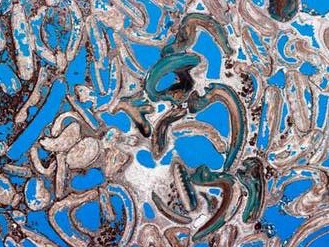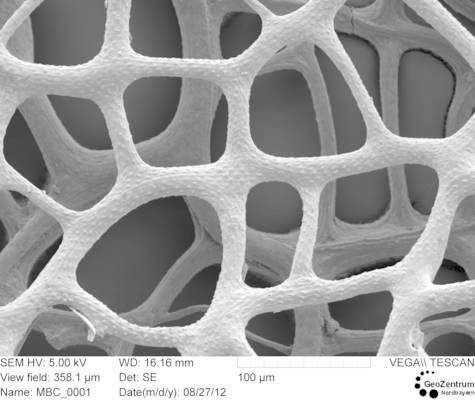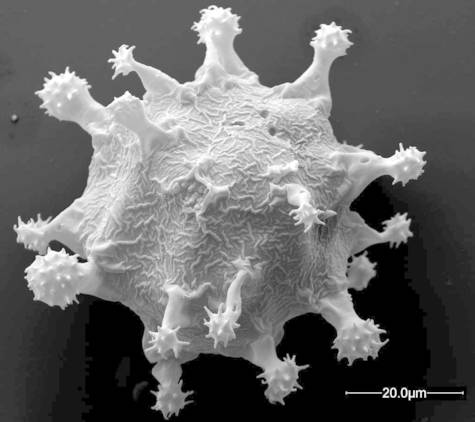Carbonate Sedimentology & Facies Analysis
“Carbonates are born not made” as Noel James wrote in 1979. Carbonate rocks are produced by organisms, making them unique archives of climate and environmental history. In addition, they also form important reservoirs for hydrocarbons. Research into carbonate systems has been a focus in Erlangen for decades. Through this, the internationally acclaimed “Flügel Course” on microfacies analysis developed, alongside the publication of the international magazine “FACIES” in Springer-Verlag, one of the world’s most renowned geoscience journals.
Here the interactions between environmental change and the biosphere are examined throughout Earth’s history. These complex interactions require the use of innovative research approaches. Perturbations in the biosphere triggered by environmental change were more drastic geological past than anything observed today. The aim is to assess the potential impacts of modern day anthropogenic climate change through observation of the geological past.
Fossil organisms are important witnesses of geological history. Their abundance and diversity can be used to draw important conclusions about past ecosystems. To be effective in interpreting fossils and their biostratigraphy, accurate taxonomy is essential. This requires the identification and classification of fossils based on their morphology.



